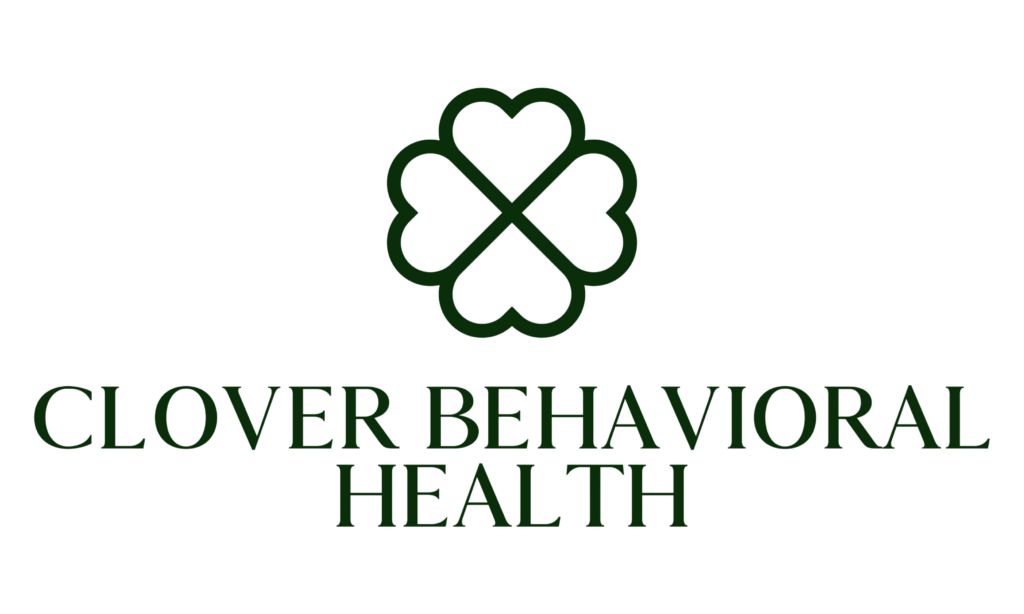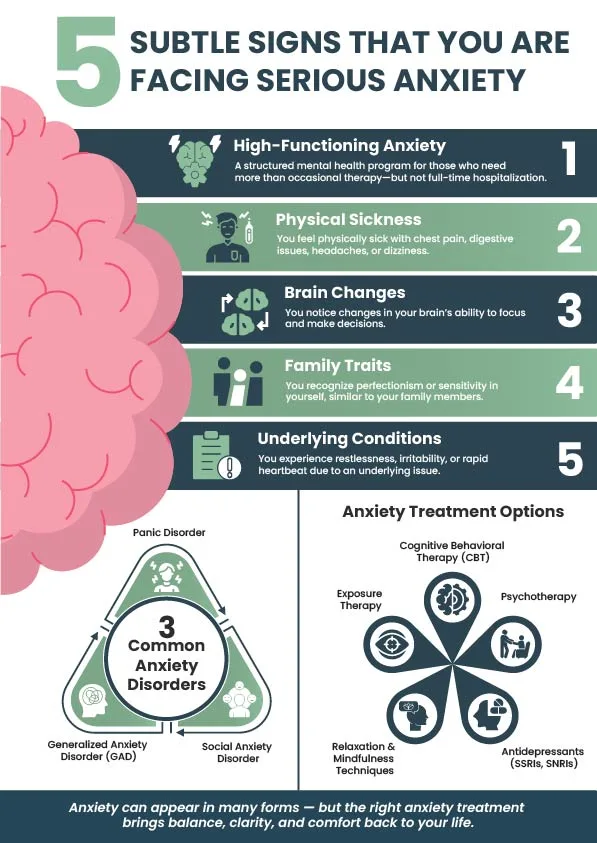There are times when emotions feel so big, so heavy, that they take over everything. That’s where DBT, Dialectical Behavior Therapy, comes in. It was created in the 1980s by Dr. Marsha Linehan, who understood what it’s like to feel lost in your own emotions. She didn’t just study it, she lived it – and she built DBT to help people who feel like they’re drowning inside.
DBT isn’t just about talking things out. It’s about learning real skills to help you through the really hard moments, the times when your mind won’t stop racing, when your chest feels too tight from anxiety, or when you’re just trying to make it through the day without falling apart.
It’s about learning how to be kind to yourself, how to stay steady when everything feels out of control, and how to slowly start feeling better – one small step at a time. It blends practical tools, like learning how to manage overwhelming thoughts, with calming practices like mindfulness. DBT teaches you how to get through emotional storms, handle stress without falling apart, and have healthier relationships.
In simple terms, DBT gives you the skills to feel more steady, more in control, and more like yourself, even when life gets really hard. The best part? It’s not about “fixing” you. It’s about accepting who you are right now, even with all the messy stuff, and slowly building a better way to cope, to connect, and to feel okay again.
The Heart of DBT: What It’s Really All About
At its core, DBT is about helping you find your footing when life feels completely off balance. It’s not here to “fix” you or tell you how you should feel. Instead, it helps you hold two very real truths at the same time: that you’re doing the best you can, and that there’s still room to grow. That mix of acceptance and change is where the real healing happens.
Let’s be honest, life can get messy. Emotions can feel like too much. Relationships can fall apart. You might feel stuck, angry, numb, or totally overwhelmed. DBT gets that. It was made for moments like those.
It gives you four core sets of skills to help you not just survive, but slowly start to feel steady again:
Mindfulness
This one’s about slowing down and really being in the moment. Whether you’re brushing your teeth or having a hard conversation, mindfulness helps you stay grounded instead of spiraling.
Distress Tolerance
When everything feels like it’s crashing down, these are the tools that help you hang on. It’s about getting through the hard stuff without making it harder – no self-harm, no emotional blowups, just small ways to breathe through the chaos.
Emotion Regulation
This is all about understanding what you’re feeling and why – and then figuring out how to handle those feelings in a healthier way. Less emotional overload, more clarity and calm.
Interpersonal Effectiveness
Because let’s face it: relationships are hard. DBT helps you say what you need, set boundaries, and still keep your connections strong and respectful. In practice, DBT isn’t just one hour a week in a therapist’s office. It’s a full support system. DBT meets you in the mess. It doesn’t ask you to be perfect – it just asks you to try. And over time, with practice, it helps you build a life that doesn’t just feel tolerable… but meaningful.
How DBT Helps In Real Life Struggles-From BPD To Depression And Anxiety
How DBT Changes Lives with BPD
If you live with borderline personality disorder (BPD), you know it’s not just “big emotions” – it’s emotional whiplash. One moment you’re okay, the next you’re drowning in anger, sadness, or fear you can’t explain. Relationships feel fragile, your thoughts can spiral fast, and some days, just surviving the next hour feels like a victory.
This is exactly why DBT was created. And for so many people with BPD, it’s not just another therapy – it’s a lifeline.
DBT gives you tools to handle the chaos. Not by shutting down your emotions, but by helping you understand them, ride the waves, and respond in ways that don’t leave you feeling worse afterward.
It’s not about perfection or quick fixes. It’s about learning how to stay grounded when everything inside you wants to fall apart. Little by little, with time and support, you stop feeling like you’re constantly in survival mode—and start feeling like maybe, just maybe, life doesn’t have to hurt this much.
And that shift? That’s where the healing begins. For a lot of people, it feels like living on an emotional roller coaster without a seatbelt. That’s where DBT steps in.
Benefits of DBT
Fewer suicide attempts. Less self-harm. Calmer reactions. More control. Study after study shows that DBT helps bring those overwhelming behaviors and feelings down to a more manageable place.
One large review of research found that DBT made a big difference in reducing things like emotional chaos, impulsive behavior, and suicidal thoughts. Not just a small shift – a solid, measurable impact.
Even more powerful? In one study, after a full year of doing DBT, 77% of people no longer even met the criteria for BPD. That’s not just progress – that’s transformation.
And it’s not just about emotions – it affects real-life outcomes too. People in DBT programs end up in the hospital less. One six-month DBT program led to significantly fewer emergency room visits and inpatient stays compared to those who got standard treatment. That’s more time living life – and less time in crisis.
The truth is, DBT doesn’t just teach people to survive. It helps them live – with more peace, more self-respect, and way less chaos.
Finding Relief from Anxiety
Anxiety isn’t just “worrying too much.” It’s that tight feeling in your chest that won’t go away.
It’s lying awake at 2 a.m. with your heart pounding for no reason.
It’s the constant loop of worst-case scenarios running in your head – no matter how much you try to reason with them.
It’s exhausting, and it can make even the simplest parts of life feel overwhelming.
Most people hear about CBT when they’re looking for help with anxiety, and yes, it works for many. But when your anxiety feels tangled up with big emotions, trauma, or a deep sense of inner chaos, DBT can be a game-changer. DBT doesn’t try to make your anxiety disappear overnight. What it does do is help you stop fighting yourself. It teaches you how to pause when the panic hits. How to sit with fear instead of running from it. How to breathe when everything in your body is shouting “danger.”
Through skills like mindfulness, you learn how to anchor yourself in the present moment, not the past that haunts you, or the future that scares you. And with distress tolerance, you build the kind of strength that gets you through the hard stuff without breaking down or spiraling.
Why DBT Actually Works: What Makes It So Effective
Let’s be real – therapy only works if it actually helps you in real life. And that’s exactly where DBT shines. It’s not just deep conversations or emotional check-ins (though those matter too). DBT gives you practical tools, real support, and a structure that helps you grow—bit by bit, in ways you can feel. Here’s why it works so well for so many people
You Learn Real-Life Skills
This isn’t just about talking through your feelings. DBT teaches you exactly what to do when life gets overwhelming. You get solid, everyday tools – like how to stay calm during a panic attack, how to deal with anger without exploding, or how to speak up for yourself in a healthy way. Skills like mindfulness, distress tolerance, emotion regulation, and interpersonal effectiveness aren’t just taught—they’re practiced until they start to stick.
It’s not magic. It’s not quick. But it’s real. And for many people, it’s the first time they feel like they can actually face their anxiety, with tools that make sense and compassion that meets them where they are. And with distress tolerance, you build simple, practical ways to get through the hardest moments without making things worse.
It Helps with More Than One Thing
DBT isn’t just for one diagnosis. Whether you’re dealing with anxiety, depression, PTSD, eating issues, substance use, or even ADHD, these skills work across the board. That’s what makes DBT so powerful: it treats the emotional struggles at the root, not just the surface symptoms. It meets you wherever you are, whatever you’re facing.
The Whole Setup Supports You
DBT gives you more than just a therapist—it gives you a whole system of support. You get One-on-one therapy to focus on your personal journey. Group sessions where you learn and practice skills with others (you’re not alone!) Coaching in real time, for those “I need help right now” moments. It’s structured in a way that keeps you supported, accountable, and never feeling like you have to figure everything out on your own.
It Can Save Money and Lives
Let’s be honest, mental health care can get expensive, especially when it involves emergency visits or hospital stays. DBT has been shown to cut down on crisis moments and reduce the need for hospitalizations. In places like Australia’s public health system, it’s already proven to save money long term, because when people have tools that work, they don’t end up in crisis as often.
Are You All Set to Feel Safer? You Can Get Help from Clover Behavioral Health
Clover Behavioral Health can help when life feels overwhelming, emotions become overwhelming, or you’re just ready for a change. Our staff provides considerate, practical care that is focused on your top priorities. As you regain your equilibrium, develop your strength, and begin to feel like yourself again, we’ll be by your side.
Key Takeaways
DBT helps you feel more in control of your life, manage strong emotions, and create healthier relationships. It’s about striking a balance and building a more stable and satisfying life. You will always have kind, encouraging people at Clover Behavioral Health by your side.















